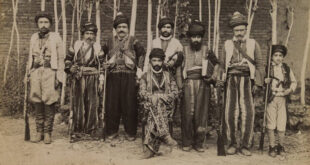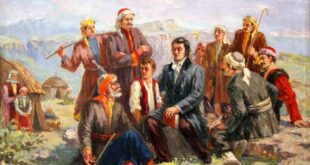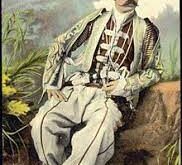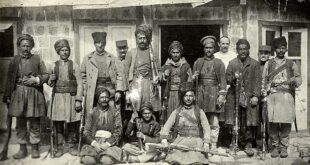The Shake Hand of Sheikh Mahmud Barzanji with the “dirty” British
By Minhaj Akreyi
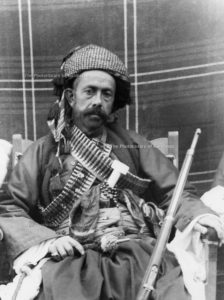
We live in a society where our source of information is received in many different forms. The information is often without any concrete evidence and we tend to believe quickly, spread it, and before we know it, a false information becomes an unknown fact. This is the case with a revolutionary King of Kurdistan, Sheikh Mahmud Barzanji (May he rest in peace), in the early 1900s in which he revolted many times against the British Imperialism for the freedom of Kurdistan. Supposedly, Sheikh Mahmud Barzanji refused to shake hand with the British people with bare hand because, according to the rumor, Barzanji thought it is forbidden in Islam to touch “dirty” or non-believers. Neither does Islam say such a thing, nor Barzanji did such a disgrace thing.
I was very shocked when the first time I heard that. Many questions ran through my mind; why a religion of peace would say such thing? Why a king of a country would do such a thing? I became very interested and tried to research a lot. I did not find a single evidence to back this claim, or rather rumor. Then I asked myself who would make such a rumor? I felt embarrassed asking myself this, considering the amount of enemies the Kurds have. However, I get saddened when I see our own intellectual Kurdish people believe in this rumor.
Although it is hard, or even impossible sometimes to prove something that never happened or is not there, it is possible in this case. Since this happened with high British people, such as commissioners, leaders, and colonels, they must have been furious to be disrespected in such a way. There was Colonel Sir Arnold Wilson, the British Civil Commissioner in Iraq who had the intention of forming an independent Kurdistan and he appointed Sheikh Mahmud Barzanji to governor of Sulemani on behalf of the British. There was Sir Percy Cox, High Commissioner for Iraq, met Sheikh Barzanji many times. There was Major Noel who learned good Kurdish, and it was Sheikh Barzanji who told Rafiq Hilmi, an intellectual, to teach Major Noel Kurdish. There were many other British people whom Sheikh Barzanji interacted and worked with, but none of them ever mentioned anything of such shameful act. Many British historians and writers have written books, then and now about the Kurdish people and history, never has such a thing been mentioned. If an act like this were true, there would have been many times where it would have been mentioned, perhaps even up to now.
Rafiq Hilmi was a very prominent intellectual and poet who spent great amount of time with Sheikh Barzanji. Never did Hilmi ever mention such thing in his writings. No Kurdish historian has mentioned such thing either. During the short momentum of the Kingdom of Kurdistan of 1920, when Sheikh Mahmud Barzanji was the King, his finance minister was a Christian, Abdulkarim Alaka. Around the year 1919, Sheikh Barzanji wrote a letter to the Soviet Union leader, Lenin, and asked for his support for the Kingdom of Kurdistan. Lenin was a man who was anti-religion, anti-God, a communist; if Sheikh Mahmud Barzanji did what he is being accused of, than why would he send a letter to an anti-God person? Why would he appoint his kingdom’s finance minister, a “dirty,” non-believer person?
A person like Sheikh Mahmud Barzanji who devoted his whole entire life for the nation of the Kurds, for the struggle of the Kurds, for the freedom of the Kurds gets disrespected like this is very sad and shameful. He was exiled from Kurdistan to India, he was arrested many times, engaged in many wars, fled his home and left behind his family for the sake of mine and your freedom, for the sake of the holy struggle until he died in another country, in Iraq. And in return, this is how some of us pay back. I am for criticizing Kurdish leaders, from the past to now; and I am for finding the mistakes in our leaders, but when there is absolutely no evidence and documents to proof such thing, I am against it. King Sheikh Mahmud Barzanji was no lesser than any other great Kurdish leaders we have had and his position should be regarded high. He sacrificed his life for Kurdistan.
 History of Kurdistan
History of Kurdistan
